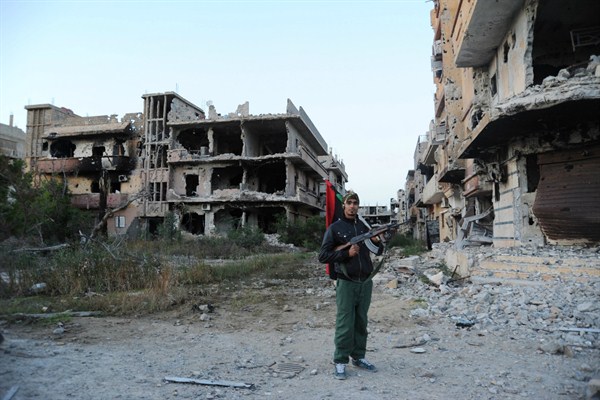The U.S. foreign policy community tosses the word “failure” around a lot: intelligence failures, policy failures, failures of imagination. Each American president is assigned his share of failures, sometimes based on reflections of those who participated in hard policy decisions, but more often based on judgments made by others who were not directly involved. It’s perfectly fair to assess whether the outcome of a particular policy succeeded or failed to achieve its stated goal. Yet over time, some misleading “truths” become established that need to be checked and revisited.
Take the increasingly common framing of Iraq, Afghanistan and Libya as a collective failure of recent administrations. Of course, the wars in Iraq and Afghanistan are the legacy of President George W. Bush, while it was President Barack Obama who made the call about a U.S. role in the intervention in Libya in 2011. So while Iraq—less so, Afghanistan—is seen as the failed foreign policy of a neoconservative administration, the failure of judgment in Libya is aimed squarely at Obama and his band of liberal interventionists. If anything, Syria should loom larger than Libya as an Obama-era failure, but that’s a subject for another day.
No one can minimize the tragedy of Libya today, from the lawlessness that immediately followed the death of Moammar Gadhafi to repeated setbacks in helping various Libyan factions work to build a viable political system amid an escalating civil war. And the costs of Libya’s weak governance have regional consequences. Its huge and porous frontier, bordering six countries, has allowed guns and terrorists to flow into African conflicts and African migrants to transit Libya en route to Europe. Today, there is some slim hope that the United Nations, with the efforts of its talented and tenacious special representative, Ghassan Salame, can goad Libyan political leaders into a more practical agreement on governance, so that they can begin to build a state that never really existed during Gadhafi’s 42-year rule.

